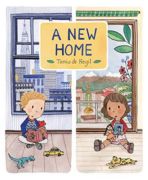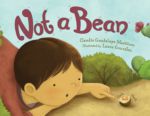12-year-old Julia keeps a diary about her life growing up in Juarez, Mexico. Life in Juarez is strange. People say it’s the murder capital of the world. Dad’s gone a lot. They can’t play outside because it isn’t safe. Drug cartels rule the streets. Cars and people disappear, leaving behind pet cats. Then Dad disappears and Julia and her brother go live with her aunt in El Paso. What’s happened to her Dad? Julia wonders. Is he going to disappear forever? A coming-of-age story set in today’s Juarez.
Mexico
Materials from Mexico
Mexique: A Refugee Story From The Spanish Civil War
Follows a group of 456 children whose families sent them to Mexico aboard the Mexique at the start of the Spanish Civil War for what was expected to be a short stay. Includes historical notes.
Featured in WOW Review Volume XIII, Issue 3.
Santiago’s Road Home
The coins in Santiago’s hand are meant for the bus fare back to his abusive abuela’s house. Except he refuses to return; he won’t be missed. His future is uncertain until he meets the kind, maternal María Dolores and her young daughter, Alegría, who help Santiago decide what comes next: He will accompany them to el otro lado, the United States of America. They embark with little, just backpacks with water and a bit of food. To travel together will require trust from all parties, and Santiago is used to going it alone. None of the three travelers realizes that the journey through Mexico to the border is just the beginning of their story.
Santiago’s Road Home is a WOW Recommends: Book of the Month for December 2020.
The Land Of The Cranes
Nine-year-old Betita and her parents fled Mexico after her uncle was killed by the cartels, and settled in Los Angeles seeking political asylum and safety in what her father calls Aztlan, the land of the cranes; but now they have been swept up by by the government’s Immigration Customs Enforcement, her father deported back to Mexico, and Betita and her mother confined in a family detention camp–Betita finds heart in her imagination and the picture poems her father taught her, but each day threatens to further tear her family apart.
Rise Of The Halfling King (Tales Of The Feathered Serpent #1)
A magical boy from Mayan mythology faces impossible tasks and a ruthless king to save the people of Mexico.
Yaqui Myths And Legends
This work has been selected by scholars as being culturally important and is part of the knowledge base of civilization as we know it.
Today Is The Day
A young Mexican girl eagerly awaits her absent father’s return and hopes that he will bring enough money so that she can walk to school in new shoes.
A New Home

Moving to a new city can be exciting. But what if your new home isn’t anything at all like your old home? Will you make friends? What will you eat? Where will you play? In a shared voice, a boy moving from New York City to Mexico City and a girl moving from Mexico City to New York City express their fears about leaving home to live in a new and unfamiliar place. Tania de Regil offers a heart-warming story about finding home wherever you go.
Let’s Work

Cynthia Weill scores again with an early concept book that bring every kind of job to life, including the work of the dedicated palm weavers of Flavio Gallardo’s workshop, whose miniature palm weavings illustrate this playful book, teaching children words for work in two languages. The weavers live in the village of Chigmecatitlán in the Mixteca part of the Mexican state of Puebla. With tremendous skill and patience, the artisans of this region practice palm weaving, a craft which came to Mexico even before the arrival of the Spanish in the early 15th century. Imagine being able to hold all of the illustrations in one book in the palms of your hands. You can do that with the tiny weavings in Let’s Work. Most pieces are no larger than a dime!
Not A Bean

With Spanish vocabulary and a clever counting concept, this poetic story shares the life cycle of a Mexican jumping bean. This curious jumping insect is actually a seedpod from a shrub called yerba de la flecha, into which a caterpillar burrows, living inside the pod until it builds a cocoon and breaks out as a moth. Perfect for preschoolers and prereaders, this creative picture book explores the Mexican jumping bean’s daily life and eventual transformation and escape from the pod.
